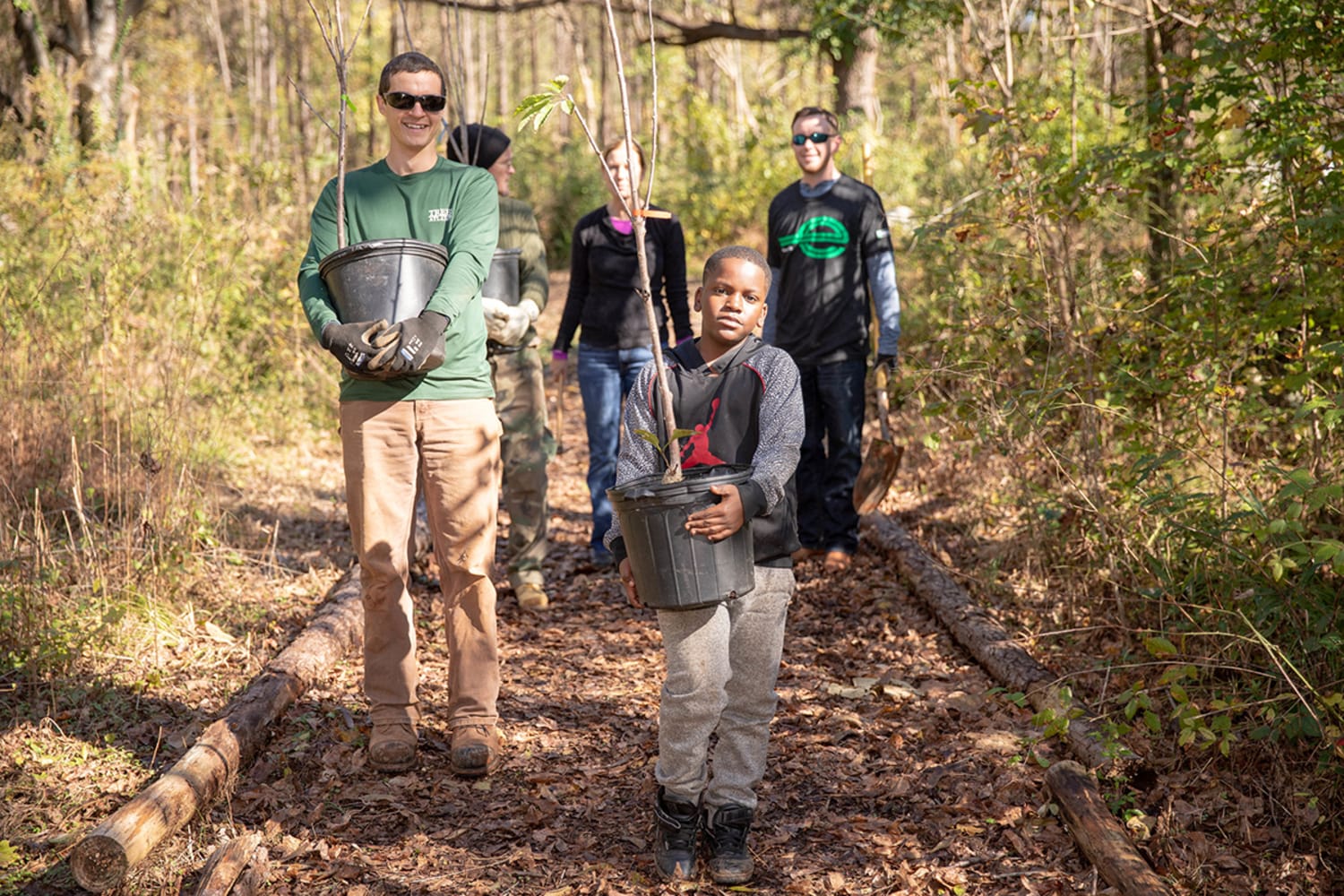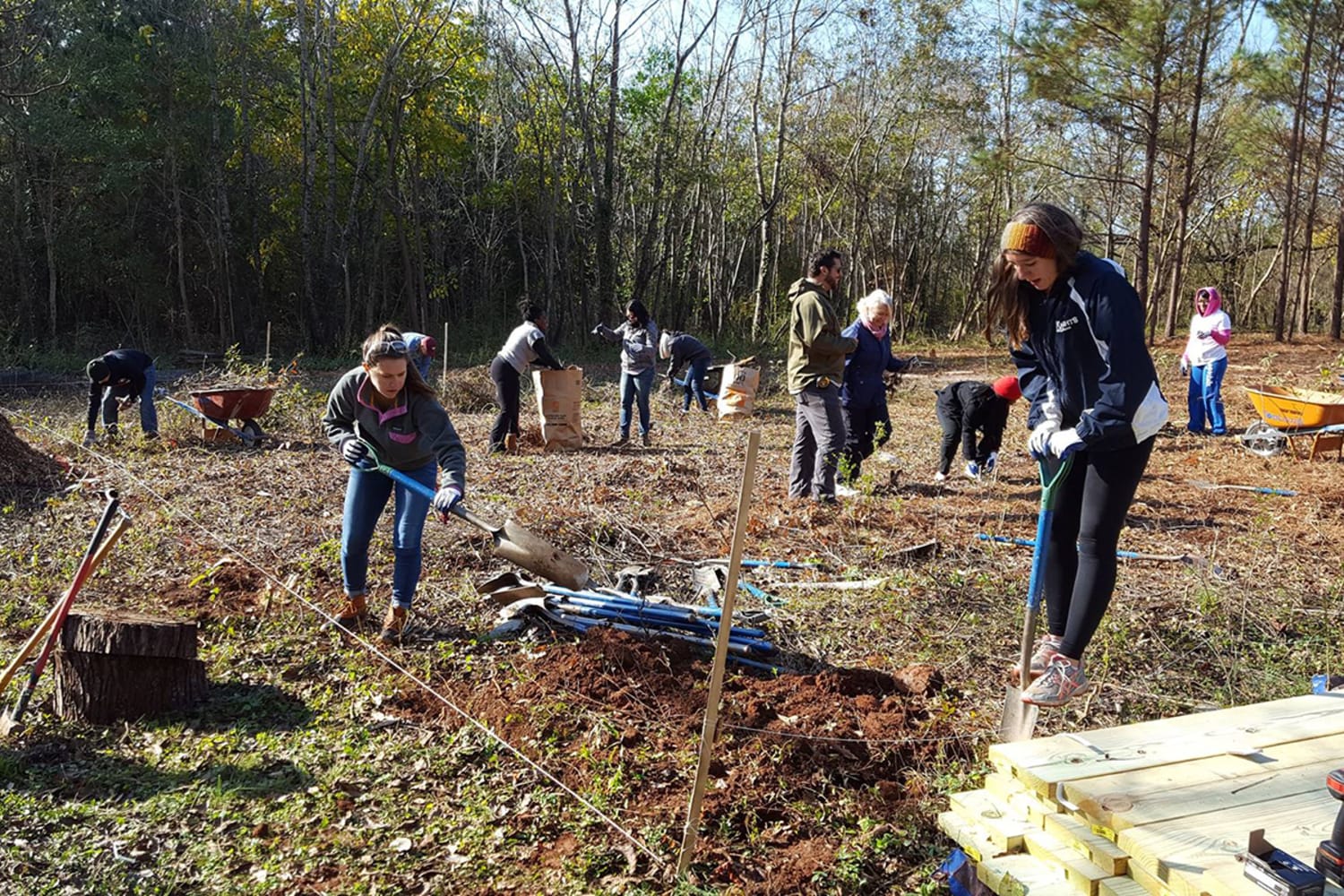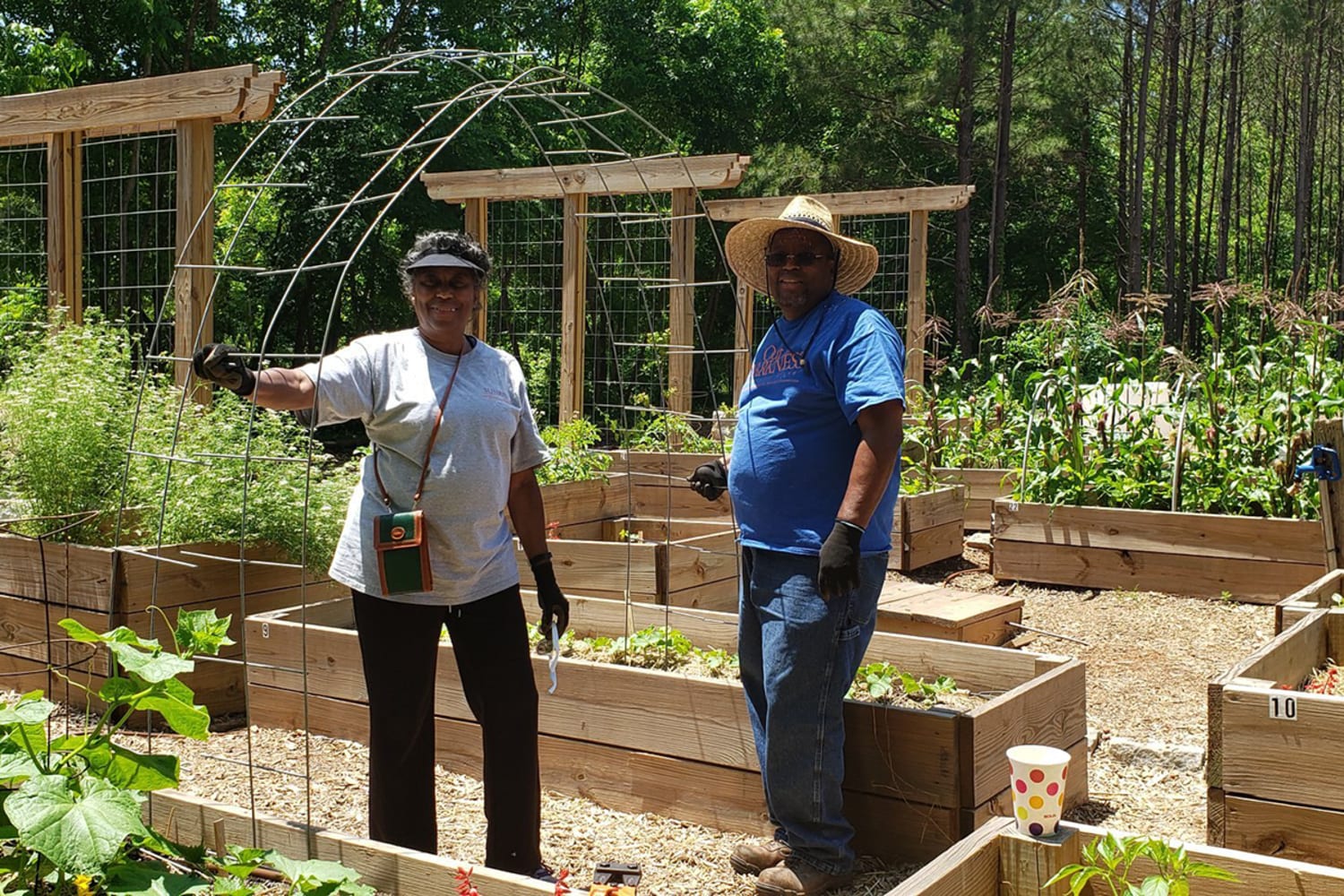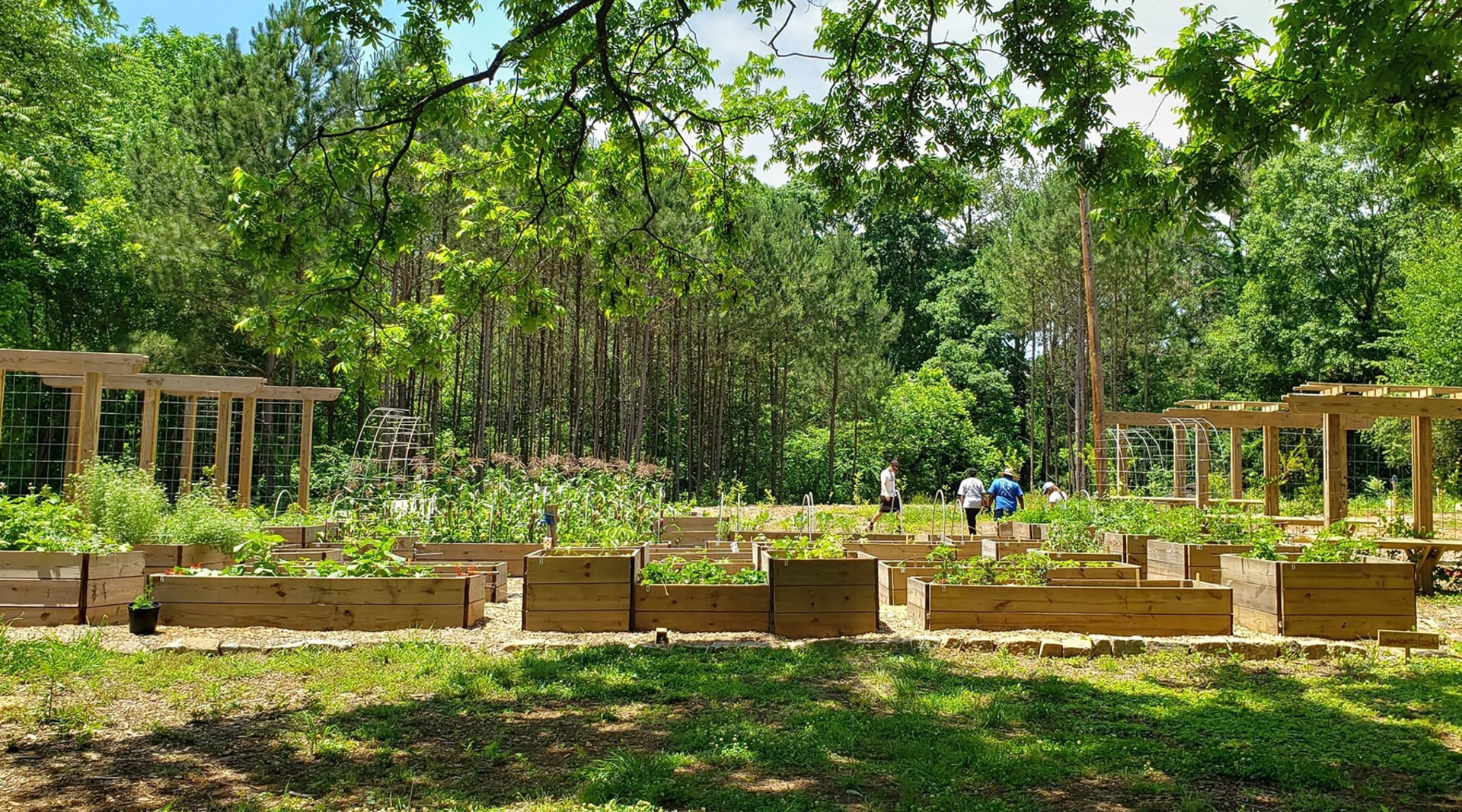New city-led agriculture initiatives are combatting food insecurity and eliminating food deserts by giving consumers a direct line to locally grown produce.
Community gardens get an upgrade.

The city of Atlanta is “creating a new kind of public park”—a first of its kind free food forest. The Urban Food Forest at Browns Mill is planted on a lot that had been slated for a townhouse development. The site is now being transformed into the first city-owned and managed food forest. It is the largest food forest in the US, with over seven acres and 2,500 plants. The edible landscape will provide Atlanta residents with pesticide-free nuts, fruits, vegetables, herbs and mushrooms and is part of the city’s larger mission to bring healthy food within half a mile of 85% of its 500,000 residents by 2022.
Boston is also investing in food forests. In February 2021, mayor Martin Walsh allocated $200,000 to transform vacant land into two separate urban food forests. The move was part of the latest round of the city’s Community Preservation Act (CPA) funding. Others, like the Beacon Food Forest in Seattle, are expanding to meet growing demand—it is currently undergoing an expansion to double its size.

Pennsylvania is funneling government funds into urban agriculture. On March 1, 2021, the Pennsylvania Department of Agriculture opened applications for its Urban Agriculture Grant Program. The purpose of the $500,000 grant is to expand agricultural infrastructure in urban food deserts to improve access to fresh, local food and provide hands-on learning and community-building opportunities.
“This pandemic has focused our attention on inequities, but it has also sharpened our focus on the important role urban and community gardens play in our commonwealth’s food system,” said Pennsylvania’s secretary of agriculture Russell Redding. “This funding for urban agriculture projects will strengthen the resiliency of urban communities across Pennsylvania and the food that grows from these projects will nourish those in need, together breaking down the walls of food apartheid.”

New York City mayoral candidate Eric Adams wants to turn unused urban spaces into sources of fresh produce and agricultural education for local communities. One $13 million project is “trying to turn a public housing development called Marlboro Projects [into] a two-story greenhouse that’s going to teach farming, education around farming, and how to deal with food deserts,” Adams told Eater.
In a time of heightened food insecurity, urban agriculture initiatives like these are democratizing access to fresh produce. As one community gardener told Eater, “in this world, where it feels like anything that can be commodified is commodified, to be able to grow your own food…it feels like a revolutionary act.”
Please provide your contact information to continue.
Related Content

KFC Malaysia and VML Launch 'KFC Treats' To Make Everyday Snacking a Joyful Ritual

